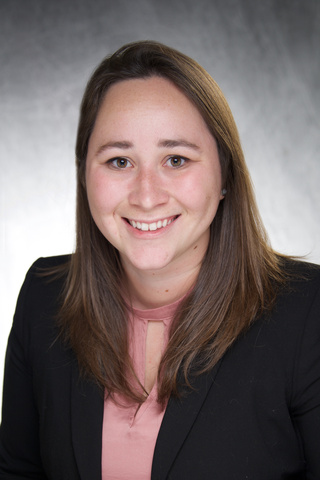 Why did you choose to pursue a career in genetic counseling? What do you like best about it?
Why did you choose to pursue a career in genetic counseling? What do you like best about it?

I initially chose to pursue a career in genetic counseling because it is a true intersection of human connection and the complex science of genetics.
My favorite part about being a genetic counselor at UIHC is the time I’m able to spend with my patients. It’s a privilege to walk alongside these families on their diagnostic journey and the moment I am able to tell a family we’ve answered the “what?” or the “why?” is incredibly meaningful. Families facing unnamed health conditions can feel isolated, but if I can bring them out of that isolated space, or just be there with them, I feel like I can make a difference.
Why is genetic counseling important?
Genetic counseling is important because every single individual has millions of data points inside every cell of their body, and these data points are their DNA. This data, that is often overlooked, has a huge potential to affect their health and health management.
Even further, every single individual has a family that may also be impacted by this information. A genetic counselor, with training in both genetics and psychosocial counseling, is the ideal person to really delve into this data and use it to provide personalized care to the patient and their family.
How do you see genetic counseling impacting medicine?
Genetic counselors impact medicine by providing bridges over two important gaps that have recently grown with the advancement of genomic technologies. First, the gap between a patient’s genetic information and the patient themselves, and second, the gap between this same information and the provider.
Not only can a genetic counselor counsel a family on test or a new diagnosis, we can also counsel providers on testing strategies, and result interpretation. By bridging these gaps, were allowing genomic technologies to be integrated into routine care.
What is the most challenging aspect of your job?
The most challenging aspect of my job is the continual evolution of the field. Everyday there are newly described genetic conditions, new tests, new recommendations. It can be difficult to keep up with everything, but that is also what makes it exciting.
Advice to those considering genetic counseling or what should they know.
For those who are considering a career in genetic counseling, I would recommend they reach out! Speak with a genetic counselor, ask questions, consider shadowing.
The Iowa Institute of Human Genetics also has some great career days throughout the year where anyone is welcome to come learn about genetic counseling and other careers in genetics.